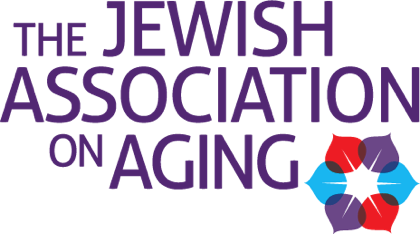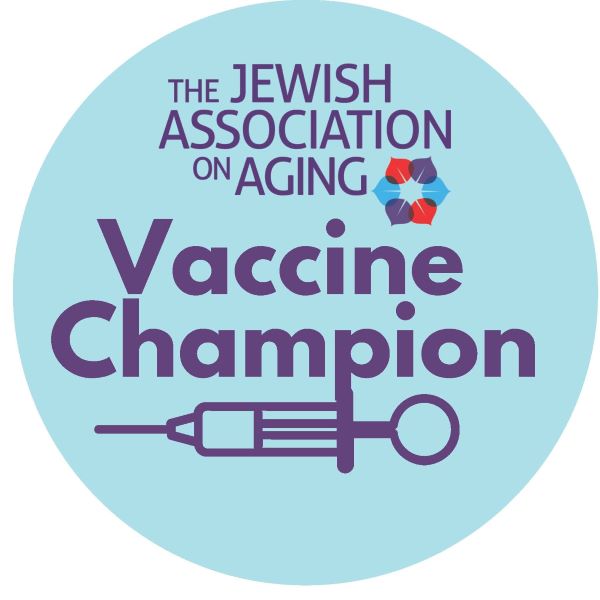January 4, 2020
As a long-term care community serving seniors throughout the pandemic, we have seen first-hand the pain and suffering this virus has caused our residents and their families.
At JAA, we encourage everyone to get the COVID-19 vaccine whenever it becomes available based on the distribution protocols of the CDC and the PA and Allegheny County Health Departments.
The following general questions and answers are provided by The Society for Post-Acute and Long-Term Care Medicine and are being made available by JAA to help clearly communicate our belief in the safety and efficacy of the vaccine.
Q. How do I know the vaccine is effective?
A. Following extensive trials, two vaccines are currently authorized for emergency use in individuals 16 years of age and older by the Food and Drug Administration (FDA): Pfizer/BioNTech and Moderna
- In trials, the Pfizer vaccine had overall efficacy of 95% (meaning 95% of those tested were protected from having the infection)
- In trials, the Moderna vaccine had overall efficacy of 94.1% (meaning 94.1% of those tested were protected from having an infection)
- Similar efficacy was found with different races, ethnicities, and ages.
Q. How do I know the vaccine is safe?
A. Safety is the most important priority in vaccine authorization
- To assess safety, the FDA typically advises that a minimum of 3,000 participants are included in a trial. The COVID-19 vaccine trials included 30,000 to 50,000 participants
- Most side effects occur within 6 weeks of vaccination. To be more cautious, the FDA requires 8 weeks of safety monitoring of the COVID-19 vaccines
- Ongoing safety monitoring continues as the vaccine is distributed.
Q. Why should I trust the vaccine?
A. The FDA is using the same strict standards that it has for decades
- No steps were “skipped” in trials or corners cut in current distribution
- Two independent advisory committees review results
- Members and experts of these committees have no conflict of interest and are not associated with any vaccine manufacturers
- The Vaccine and Related Biological Products Advisory Committee (VRBPAC) that advises the FDA
- The Advisory Committee on Immunization Practices (ACIP) that advises the CDC
Q. What is an EUA and what does that mean for me?
A. An EUA is an “Emergency Use Authorization” which was necessary to get these vaccines distributed
- An EUA does NOT imply that the authorization was done too quickly or that the vaccine is not safe
- EUA is a shorter process but no steps are skipped in the safety evaluation process
- The FDA assessed if the vaccine’s known and potential benefits outweigh the known and potential risks
- Two separate advisory boards (VRBPAC and ACIP) review the data and make recommendations.
Q. How was the vaccine developed so quickly?
A. This is a pandemic, requiring a special effort to develop a vaccine including:
- A global effort with the world’s leading scientists focused on a single task
- Nearly unlimited resources (money, knowledge, manpower, technology)
- A large pool of diverse adult volunteer trial participants.
Q. How does the vaccine work?
A. Both vaccines use mRNA technology, new to vaccine production but already used in cancer treatment. It has been studied for more than ten years.
- mRNA COVID-19 vaccines give instructions for our cells to make a harmless piece that looks like the “spike protein.” The spike protein is found on the surface of the COVID-19 virus.
- Our bodies recognize that this protein should not be there, so they build antibodies that will remember how to fight the virus that causes COVID-19 if we are infected in the future.
- mRNA COVID-19 vaccines cannot give you the virus nor do they alter your DNA.
Q. When and how long will I be protected?
A. Both Pfizer and Moderna vaccines require two doses, and, depending on which vaccine brand you receive, doses are administered 3-4 weeks apart
- Depending on which brand you receive, protection occurs 1-2 weeks after the second dose
- We will most likely not know how long the vaccine will be protective once we receive it but will know more as time passes
- We may need to have vaccine shots for COVID-19 on a regular basis (like the flu shot).
Q. Will I still need to wear a mask?
A. Yes, you will still need to wear a mask after you have had both doses of the vaccine
- Similar to other vaccines, a large number of people in the community will need to be vaccinated before transmission drops enough to stop the use of masks
- The same goes for hand washing, remaining at a safe distance from others, avoiding crowds, cleaning and disinfecting surfaces frequently, and following travel guidelines. You will need to continue these practices for safety reasons.
Q. What should I expect when I get the vaccine?
A. First and foremost, the vaccine cannot give you COVID-19
- The vaccine is injected into your arm
- You can expect to have short-term discomfort including pain at injection site after vaccination
- Reactions last for 24-48 hours and are typically more pronounced after the second dose
- You must get a second dose because the vaccine will not protect you if you only get one dose
- It is required that you get the same vaccine as the first dose
Q. What are the most common side effects?
A. Side effects are normal, common, and expected. They mean your body is doing its job, making antibodies, which is a GOOD THING. Side effects generally are short-lived and should not be confused with either COVID-19 or flu symptoms.
- In the Pfizer clinical trial, these were the most common side effects by percent of total occurrences, more prevalent after the second dose:
- Fatigue 34-59%
- Headache 25-52%
- Muscular Pain 14-37%
- Fever 4-16%
Q. What if I have other health issues and I am concerned about the impact the vaccine may have on me?
A. You should ask your primary care physician or healthcare provider if your health issues prevent you from getting the vaccine. Your PCP is the most qualified to respond as he or she knows your history and will be the best source for information about the impact the vaccine may have on you.
Q. How much will the vaccine cost?
A. Vaccine doses purchased with U.S. taxpayer dollars will be given to the American people at no cost. However, vaccination providers will be able to charge an administration fee for giving the shot to someone. Vaccine providers can get this fee reimbursed by the patient’s public or private insurance company or, for uninsured patients, by the Health Resources and Services Administration’s Provider Relief Fund.
Q. What if I have already had COVID-19?
A. It is safe to be vaccinated and you are encouraged to get the COVID-19 vaccine even if you have had COVID-19
- If you are currently positive with the COVID-19 virus, plan to take the first dose of the vaccine 14 days from the end of your infection
- It is important to get vaccinated even if you have had COVID-19 because it could give you longer or better protection against the disease
- Even if you have positive antibodies, you should get the COVID-19 vaccine.
Q. How will the vaccine’s effectiveness be monitored?
A. Monitoring the vaccine’s effectiveness is an ongoing part of vaccine development
- Existing systems and data sources are used to monitor safety of vaccines after they are authorized or licensed, such as:
- New systems like the CDC’s v-safe which monitors COVID-19 vaccine safety
- v-safe uses text messaging to initiate web-based survey monitoring
- Any clinically important events reported by a participant would be sent to VAERS for follow-up
Q. Where should I look to get information that is more detailed?
A. It is important to get information from reliable sources (CDC, AMDA, FDA, medical directors, providers)
- Here are some links to information for healthcare providers:
- CDC: https://www.cdc.gov/vaccines/hcp/covid-conversations/answering-questions.html
- CDC: About COVID-19 vaccines: https://www.cdc.gov/coronavirus/2019-ncov/vaccines/about-vaccines.html
- CDC: Provider Resources for COVID-19 Vaccine Conversations with Patients/Residents and Answering Their Questions: https://www.cdc.gov/vaccines/hcp/covid-conversations/
- Here are links to information for vaccine recipients
- CDC: Eight things you should know about the vaccine program – https://www.cdc.gov/coronavirus/2019-ncov/vaccines/8-things.html
- CDC: Benefits of getting the vaccine – https://www.cdc.gov/coronavirus/2019-ncov/vaccines/vaccine-benefits.html
- FDA: Pfizer vaccine fact sheet – https://www.fda.gov/media/144414/download
- FDA Pfizer vaccine FAQs: https://www.fda.gov/emergency-preparedness-and-response/mcm-legal-regulatory-and-policy-framework/pfizer-biontech-covid-19-vaccine-frequently-asked-questions#:~:text=A%3A%20Pfizer%2DBioNTech%20COVID%2D,years%20of%20age%20and%20older.
Remember, social media is full of misinformation, often based on opinions gained from less-than-reliable and unofficial healthcare resources.
If you have any doubt about the vaccine, CALL YOUR PRIMARY CARE PHYSICIAN or heathcare provider to get the most reliable information so that you make your decision based on facts.


